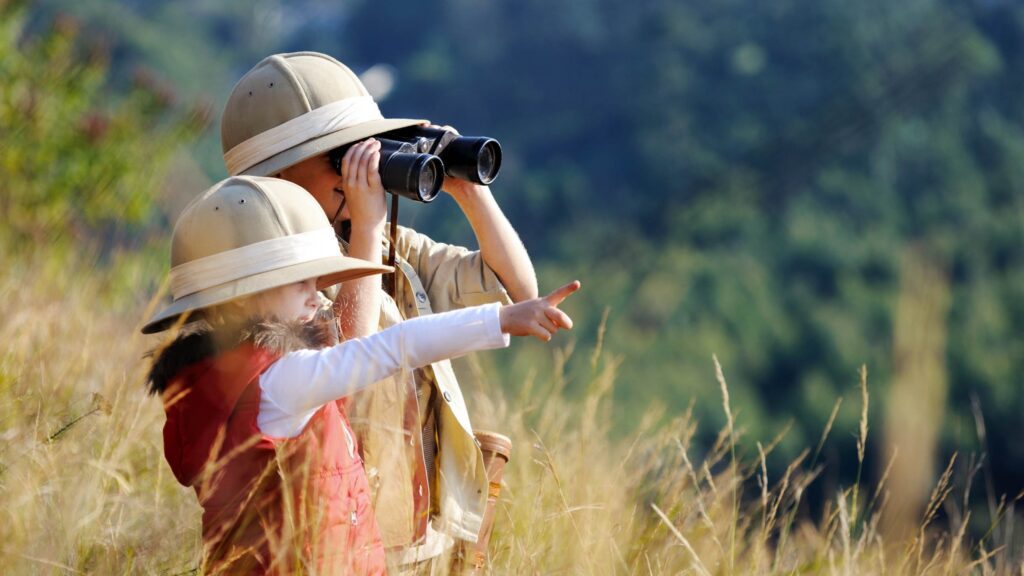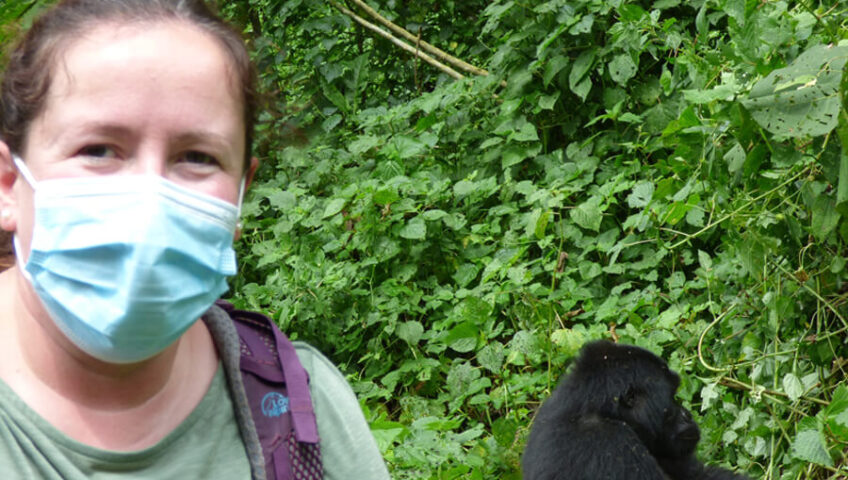How to Avoid Getting Sick on a Uganda Safari-Top Tips : As a company we get a lot of questions about health care on the road and how to avoid getting sick on a Uganda Safari especially after Covid-19 pandemic, What vaccines are needed? What happens when I do get sick?” and Since we are not doctors, we don’t like giving medical advice so we asked our team to write a few article on health and safety when you travel. This article features easy ways to stay healthy on the road while on Safari in Africa .
Getting sick is a part of everyday life and being on the road doesn’t exempt you from that fact, especially when travel itself exposes you to a whole new range of environment, bugs and insects. The fact of the matter is the longer you are traveling the more likely you are to pick up a bug or two.
Does this look like a good sight when you traveled all the way yo enjoy your safari? I thought not too.
The key to minimizing the chances of this, however, is to actively combat the risk factors of becoming sick in the first place because the last thing you want to do is to expose yourself to any more risk than you have to. Prevention is far better than any cure!
Wash your hands
We know this sounds basic, but it is surprising how many people forget it though this simple act of washing your hands should be drilled into any traveler since day one of planning your Uganda safari Tour. We have realized that the washing of your hands has a huge impact on controlling infection in a human setting, but the same is true for every aspect of day-to-day life and traveling the world is no exception.
Hand hygiene is essential to stop the spread of infection and can dramatically reduce your chances of Ebola, diarrhea, vomiting, food poisoning and flu.
Many travelers carry small bottles of hand gel and these are great as a backup but they aren’t a replacement for good old soap and water. Wherever possible wash your hands under hot water for at least thirty seconds before and after eating and always after going to the toilet. This is one of the ways to avoid getting sick.
Put on a face Mask
With recommendation from your doctor or if you are not sure of the safety of your surroundings especially when close to animals always ensure to put on a mask. According to WHO guidelines, its recommended you clean your hands with alcohol based hand rub or soap and water before putting on a mask,cover your mouth and nose with mask and make sure there are no gaps between your face and the mask,avoid touching the mask while using it; if you do, clean your hands with alcohol-based hand rub or soap and water,replace the mask with a new one as soon as it is damp and do not re-use single-use masks and to remove the mask: remove it from behind (do not touch the front of mask); discard immediately in a closed bin; clean hands with alcohol-based hand rub or soap and water.
Drink bottled water
This is another way to avoid getting sick. When you can’t be sure of the purity of the local water or you are traveling in areas where sanitation is not that great, then you should avoid the local tap water. Even if locals drink it without any problems your stomach may not have the right bacteria to protect you from becoming ill so avoid local water and ice when provided.
We recommend that at the very least you should always drink bottled water and double-check that the seal is intact on the bottle top too. It is also a good idea to use bottled water to brush your teeth. Remember it saves money and environment when you use a water bottle with a built-in filter as this reduces the need to buy bottles of water constantly.
Always be careful of food contamination
Food contamination is one of the biggest causes of traveler’s diarrhea problems on any travel adventure. If you are not careful with your food on your travels, you could potentially be exposing yourself to diarrhea, cholera, and much more nastiness.
You should always ensure that any food you eat is fresh, cooked thoroughly and served piping hot. This helps you avoid getting sick.

For street food lovers, it’s amazing as you can be able to see how clean the cooking environment is and the food is often prepared right in front of you. But look out for signs of good hygiene practice at any street food stall or food court you eat at. Does the person handling the food wear disposable gloves and change them frequently? Is there a separate person handling the money or, at the very least does the person cooking the food remove and replace gloves every time they handle cash? Is hand washing a regular occurrence? Is raw food left out in the open or is it stored correctly? These things may seem inconsequential but they are important.
You probably aren’t going to avoid a bit of stomach upset completely on your travels especially if you are traveling long term but if you are aware of good food hygiene practices and follow them as much as possible, then you can at the very least minimize the risk of becoming ill.
Don’t be afraid of having familiar food
Eating local food and delving into the local cuisine is one of the absolute true pleasures of traveling and one you should never miss out on but that said, a degree of common sense is needed too. Jumping straight into a diet of spicy curries or predominantly red meat is a good way to ensure some form of gastrointestinal upset if your stomach isn’t used to it.
Food intolerance happen when your gut can’t properly digest the food you’ve eaten, or you’ve introduced something completely new and different to it which can irritate the digestive tract and lead to stomach pain, cramps, gas, diarrhea, vomiting, and heartburn. The trick to trying new foods and new cuisine is to mix it up a little bit. If your stomach is sensitive, take it easy at first and don’t be afraid of eating familiar food from time to time.
Always stay active
Exercising is one of the best ways to stay fit, healthy and to fight off unwanted infections and a way to avoid getting sick .It improves your overall health and well-being and strengthens your immune system which makes you less susceptible to illness and if you do get sick your body is able to fight off the infection and more quickly get you back on your feet. It is 100% factual because fit people still get sick, but in general the fitter you are, the better your body will be at shrugging off that annoying bug or illness.
Protect yourself against the sun rays.
Sunburn can seriously ruin a good travel experience! Travelers get very badly sunburned while on a Uganda Safari mainly due to forgetting to reapplying sun cream. It is not an experience you would want to experience!
Protecting yourself from the sun goes beyond getting bad sunburn, always ensure to stay well hydrated if you are traveling in a country or region with a hot or tropical climate as well as cover up with loose clothing plus a hat or scarf. If you don’t then dehydration can set in very quickly and that can lead to more serious conditions such as exposure, heat exhaustion and heatstroke which if left unattended can become a medical emergency.
Get vaccinated
Vaccinations are probably one of the most common travel health concerns that people ask travel experts and friends. As the saying goes, prevention is always better than the cure and nothing is better at protecting you from the risk of getting a disease than being vaccinated against it.
Vaccinations are required depending on what vaccinations you have already, what country or region you are visiting and individual factors such as your personal medical history, how long you will be traveling and what you will be doing. This is why it is essential that you get one-on-one personal advice from your local travel clinic, nurse specialist, or physician before you travel.
When travelling to Africa, we recommend vaccinations for yellow fever, Cholera and hepatitis B before as you plan to travel or before entry. Remember Yellow fever vaccination is mandatory in most African entry points
Always ensure to protect yourself from mosquito bites
Mosquito bites are an absolute nightmare for any traveler. They will sometimes simply annoy you with painful and itchy welts but at worst they can transmit a whole variety of diseases such as yellow fever and not to mention malaria.
Mosquitoes can be a problem in many parts of the world but the Centers for Disease Control and Prevention, the World Health Organization and the NHS’s Fit for Travel site are excellent places to find out where there are outbreaks of diseases such as Ebola or malaria.
Always ensure that you wear the right clothing, wear light, loose cotton clothing that covers most of your skin especially around peak exposure times and places. For example, near bodies of water or at twilight or after dark, the peak time for malaria-carrying mosquitoes to feed.
Finally always sleep under nets where necessary, take anti-malarial use anti-mosquito coils and plug-in devices, apply a good dose of 30–50% DEET spray, and reapply it regularly. It is important to remember that none of these methods is completely foolproof. You can do everything right and still get bitten. However, you can always avoid getting sick with the tips above.
Basically speaking, if you are heading to Africa which is considered a high risk for malaria then I highly recommend antimalarial.
The most important thing to remember however that is each antimalarial affects different people differently. A lot of people will only suffer mild side effects, and most will have none at all.
Always make an appointment with a travel health professional well before you head off on your ‘round-the-world adventure. Many travelers instead leave it until the last minute. The average recommended time to see a health professional is 6–8 weeks before you leave, but personally I would aim for a little earlier than that, especially if you will think you will need more than one vaccination or if you have specific health concerns. The worst that will happen is that you will get an appointment closer to your time of departure if it is determined that you don’t need that amount of time to get things sorted.
The above look very simple steps that will dramatically help you avoid getting sick abroad, but often many people overlook them. Ensure that before you set off on your trip of a lifetime, take a moment to think about your health and prepare properly. That way you will be able to enjoy your trip with peace of mind.
Remember that these are general health tips only, and while they are written by qualified travel experts, they are no replacement for a consultation with your travel health nurse or physician, where individual health concerns can be discussed based on your personal history.
Engabi tours and Travel awaits your booking to take you on your safari, but rest assured that your health is a priority to us.


